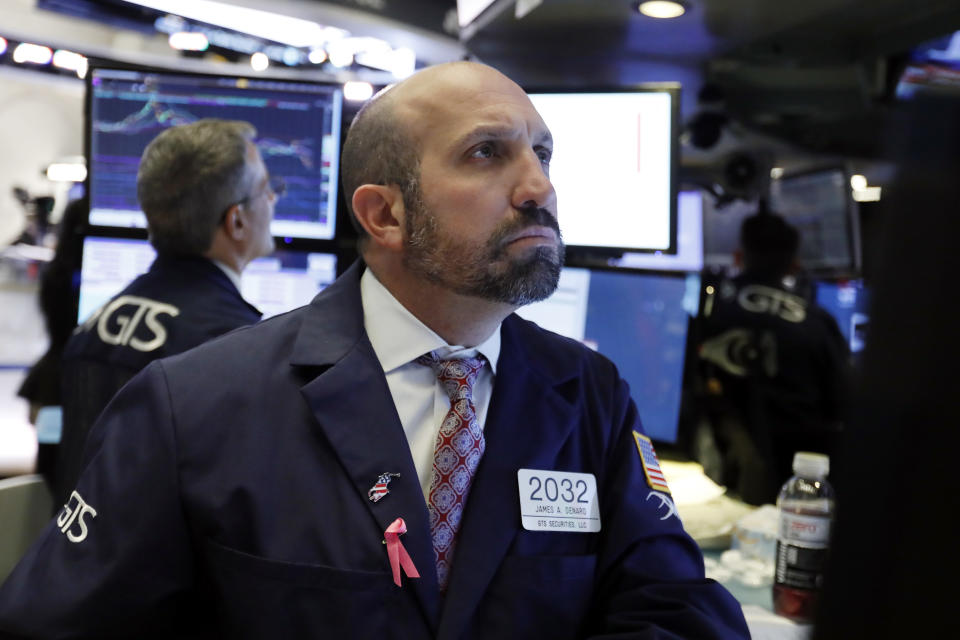Here are the 2 main issues CEOs are complaining about on earnings calls

Deutsche Bank analysts scoured 130 third-quarter corporate earnings calls and found that executives spoke of two key themes: Tariffs and input costs.
Even though the majority of companies that have reported third quarter results have topped Wall Street’s profit estimates, the executive commentary is what has been driving stock movements in recent months.
Investors, analysts and executives have feared a looming trade war ever since President Trump imposed tariffs against some $250 billion worth of goods from China. But that fear hasn’t dinged the financial results of companies in any meaningful way … yet.
“The negative impact of tariffs is widely noted given the global nature of supply chains. However companies also indicate that the overall impact is rather modest,” the Deutsche Bank analysts, led by Binky Chadha, chief U.S. equity & global strategist, said in a note to clients Wednesday. “Specifically, companies are treating tariffs as a cost issue to be managed.”
The analysts found that companies are responding to tariffs by raising prices and revamping supply chains. That’s code for moving production out of places like China, or at least exploring a move, which is a timely process and can’t happen overnight.
Back in August, Williams Sonoma (WSM) CEO Laura Alber pointed to supply chain diversification on the company’s second quarter earnings call.
“We believe we are well-positioned to [mitigate the potential financial impact of tariffs] given our vertically integrated multi-country supply chain, where we design and contract manufacture almost all of our products,” she noted.
Meanwhile, aside from the cost increases sparked by tariffs, companies are also grappling with other costs, such as wages and commodities.
“Companies have been complaining about rising wage pressures for several quarters and more recently face increased raw material cost pressures due to commodity inflation as well as the tariffs,” the Deutsche Bank analysts said.
How have companies been responding to rising input costs? You guessed it, by raising prices on consumers.
“Several [companies] point to raising prices in response, but with a lag and the full impact as yet to play out,” the analysts said.
Scott Gamm is a reporter at Yahoo Finance. Follow him on Twitter @ScottGamm. Follow Yahoo Finance on Twitter, Facebook, Instagram, Flipboard, LinkedIn, and reddit.
More from Scott:
Trump attributes market volatility to midterm elections in new tweet

